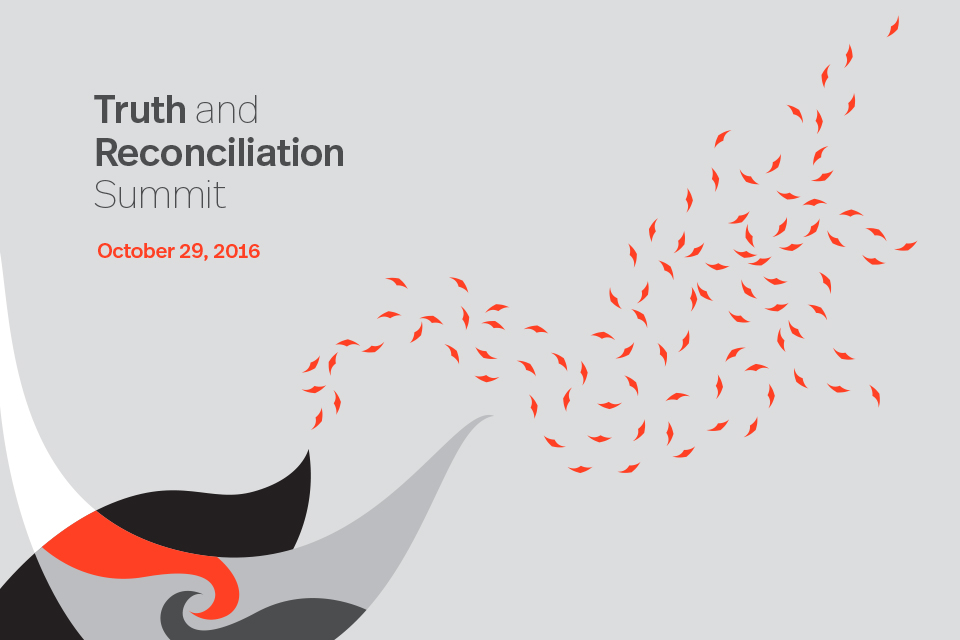Learn About Our Truth and Reconciliation Summit Report

On Saturday, October 29, 2016, Banff Centre for Arts and Creativity hosted a Truth and Reconciliation Summit in order to make space for local Bow Valley community participants to learn and respond to the Truth and Reconciliation Commission's 94 Calls to Action. Over 300 individuals participated in the Summit, in conversation with important national figures within the Truth and Reconciliation process.
From that Summit came a final report of the findings of the day, as well as insights from participants and keynote speakers. You can read the full report here [LINK].
"As a national institution, Banff Centre felt it was important to answer the call and to be involved in the reconciliation process by creating space for better understanding and improved relationships with Indigenous community members," according to the final report.
Over the course of the day, participants heard keynote speakers Phil Fontaine, former National Chief of the Assembly of First Nations and residential school survivor; Kathleen Mahoney, humans rights lawyer and Professor of Law, University of Calgary; Dr. Marie Wilson, Commissioner, Truth and Reconciliation Commission of Canada; and Jeff Horvath, Principal of Tsuut'ina Nation High School; with Master of Ceremonies, journalist Jesse Wente.
Get comfortable with the uncomfortable. Difficult conversations have to walk towards The Truth and not turn away. If we are to share this land then we need to feel the discomfort of our past equally.
Jesse Wente, Master of Ceremonies
The day consisted of a panel discussion on reconciliation inspirations, reconciliation best practices, and words of wisdom, followed by breakout "Conversation Cafés." The breakout sessions were separated into the following categories and attended by participants involved in those fields, to help better come to an understanding of how to live the 94 calls in daily life, in the community, and in the workplace.
- Child and Family Services
- Business and Tourism
- Justice and Civil Engagement
- Youth and Education
- Health and Sport
- Arts, Culture, and Heritage
Each session resulted in important discussion, insights, questions, and priority actions generated by the participants and thought leaders. You can read more about the themes and insights from each session in our full report [LINK].
A unique and meaningful experience to mingle and share in casual conversation with heroes, leaders, and well-known change makers. I found this event to be a rich, insightful, emotional, powerful day.
Summit Participant
When the sessions concluded, participants were encouraged to make a personal commitment. Over 115 personal action commitments were posted on a bulletin board, ranging in topic from engaging and connecting more with Indigenous people and communities, to being an advocate and confronting untruths. Each commitment was assigned to one or more of the 10 Principles of Reconciliation, which you can read more about in the report [LINK].
Reconciliation is not a commission. Reconciliation is not a moment. Reconciliation is not a kinder, gentler form of assimilation that clings to a historical notion that one group is superior and has all the answers and all the resources and knows what is best for another group that is less beautiful, less capable and less worthy. Reconciliation is a movement.
Dr. Marie Wilson
Banff Centre is located on Treaty 7 Territory — the sacred and traditional lands for Stoney Nakoda, Blackfoot, and Tsuut'ina Nations. You can watch the keynote speeches in the video below.